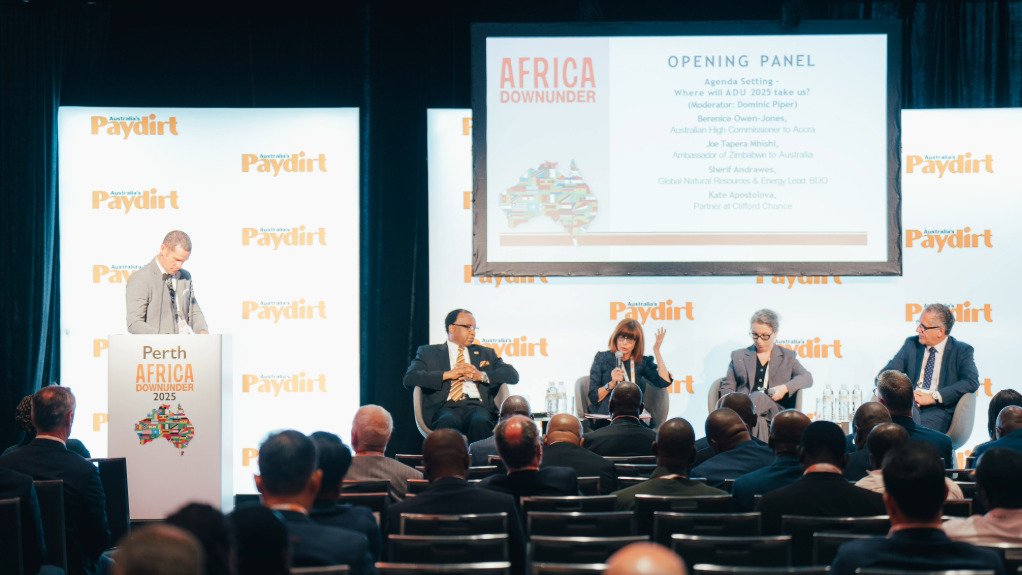Mining Other

African governments push for local value-add as resource nationalism returns

Australian High Commissioner to Ghana Berenice Owen-Jones told delegates that while resource nationalism was not a new phenomenon, its latest iteration was being driven largely by economic imperatives, rather than political narrative.
“We have seen the emergence of new mining codes across West Africa … and they are very similar in that they have a focus on greater regulatory control, increased taxes, and greater local content,” she said. “What is slightly new is governments’ emphasis on in-country value-add and, in some cases, greater government ownership. Unfortunately, this sometimes comes with an increase in disputes or arbitration.”
Owen-Jones highlighted that the region had become a nexus of competition for resources, particularly critical minerals, with China currently holding an advantage in processing. Australian companies already play a significant role in the region, with about A$30-billion invested across nine West African nations.
She cited Guinea’s Simandou project – a Rio Tinto-led joint venture to unlock one of the world’s largest untapped iron-ore deposits – as a “nation-building” undertaking, while also pointing to growing lithium opportunities, such as Atlantic Lithium’s planned mine in Ghana.
Yet, she cautioned, the balance between ensuring fair returns for governments and offering stable investment conditions for companies remained difficult to strike. “Governments, local communities and companies need to work together to build trust and find shared value, without weakening industry competitiveness,” Owen-Jones said.
Zimbabwe’s Ambassador to Australia, Joe Tapera Mhishi, linked the drive to increased value-addition to the African Union’s continent-wide agenda. “The subject of value addition across Africa, not only in mining but in many other sectors of the economy, has gained credence,” he said.
With critical minerals now central to global supply chain strategies, he argued Africa was “well positioned to craft strategic partnerships with Australia” that would align with both sides’ aspirations.
He noted that Australia’s recent adoption of critical minerals stockpiling policies provided scope for collaboration. “Africa says we are there to play with you, to add value to that vision … if we can also address the subject of value addition in our respective jurisdictions.”
Legal perspective came from Clifford Chance partner Kate Apostolova, who warned that while the goal of maximising resource benefits for citizens was legitimate, the methods adopted by some governments risked undermining investor confidence.
“What is concerning is how some governments have taken more subtle and more indirect forms of nationalism and resource nationalism by changing fiscal terms in contracts that are already concluded,” she said. In some cases, tax rates had jumped dramatically or governments sought to increase State ownership after discoveries were made.
Investors, she stressed, require predictability. “Money flows where there is certainty. If you have increased geopolitical and regulatory risk, there is less funding to develop the mine.”
Apostolova advocated for the use of bilateral investment treaties (BITs) as a tool to manage sovereign risk. She explained that BIT protections not only provided recourse in disputes, but also improved access to finance, with studies showing projects covered by such treaties secured larger loans on better terms. “It is a powerful tool to force yourself into the conversation if you are not getting the feedback you want,” she said.
Zambia’s High Commissioner to Australia and New Zealand, Elias Munshya, used question time after the panel discussion to push back. He said African countries were open to advancing treaties, but urged investors not to overstate risk.
Munshya argued that Africa was too often judged unfairly compared with other regions. “Sometimes there is a feeling that Africa is judged much more harshly than other regions in terms of sovereign risk,” Munshya said. “Out of 54 countries, maybe four may be troublesome, but there are 50 others that are very safe, politically stable, with legal systems very similar to Australia’s. Yet, we still get treated as though the entire continent is high-risk.”
Beyond policy, Owen-Jones pointed to ongoing security challenges, particularly in the Sahel, where resource nationalism was compounded by instability. She said the Australian High Commission in Accra convened a yearly West Africa Mining Security Conference to help companies assess and mitigate risks.
Meanwhile, Argonaut chairperson Liam Twigger framed the issue bluntly in his opening remarks, noting that capital was fluid and “goes where it is wanted and respected – and can leave in the blink of an eye”.
He emphasised that Africa remained home to “incredible” new developments in countries such as Malawi and Lesotho. “Capital will find the path of least resistance and stays where it is welcome, nurtured and protected,” he said.












